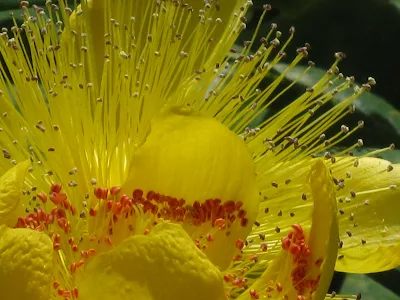


Walking by the L.S. Klinck Building on the UBC campus last week I noticed honey bees gathering nectar and pollen in the flowers (pictured above). Notice the large pollen sacs on the honey bees' legs. There were also a few bumble bees, and other bees, but the honey bee is always of interest and anyone who has kept bees has a fondness for them. Back in the mid-1970s my friend R.R. Skinner opened his hives for me to observe his bees. That was interesting and I knew right away that one day I would keep my own bees. On my visits to R.R. I would write down pretty much everything he said--I seem to have the ability of sitting and listening to people talk about themselves for many hours in a non-judgemental and fairly passive way--but R.R.'s stories about beekeeping were always interesting, including moving hives on his bicycle and overwintering a hive in his bedroom. Beekeepers can be quite obsessive about bees, and this obsession seems eccentric to people who have never kept bees. But one man's eccentricity is another man's normal life.

Above, the L.S. Klinck Building on the UBC campus.
It was in the early 1980s that my friend, the poet George Johnston, sat down with me and went over what I would need to establish my own apiary. I ordered some beekeeping equipment through the mail but also drove to Bedford, Quebec to pick up boxes of bees. That's how you buy honey bees, several thousand come in a wooden box with a wire mesh front and a queen bee contained in a small box inside the larger box. You literally dump the bees into a hive like bits of Styrofoam; however, the queen bee is released into the hive only gradually so that she will be accepted by the other bees. How do you release the queen gradually? There is a sugar plug that the worker bees and the queen eat opening a space for the queen to emerge into the hive. If, for whatever reason, the worker bees don't like the queen, they will quite literally kill the queen, which means more work for the beekeeper as she will have to be replaced. There is also a smell to bees, it is feral and reminds us that bees are never domesticated, only contained. I went with George, and possibly with George Elliot, about whom George has written some memorable poems, to beekeeping seminars across the border in New York State. These events were always memorable and enjoyable to attend. I also remember, one time, driving home from Bedford with boxes of bees and beekeeping equipment and the brakes failing on the car... somehow I still made it back home, maybe fifty miles distance. That was interesting...
I used to have about ten hives that I kept in the field, near some apple trees, about a hundred feet behind The Cedars, our house on the Trout River in Huntingdon, (more correctly, Godmanchester) Quebec. I had a big hand-turned honey extractor that I bought second hand, but like many beekeepers I preferred making comb honey. Comb honey is cut directly from the frame, it's honey the way bees make it in a hive, but it also means you've destroyed the comb the bees have made, while with liquid honey you can recycle the frame with the comb on it because all you've done is cut off a surface layer of wax before extracting the honey. You extract the honey by the centrifugal force of spinning the frames. There's money in bees wax that can be made into candles and pollen that some people believe has health benefits, but this should be qualified, if you want pollen for allergies or whatever, you need local pollen since your allergies are to local plants, not pollen from China that has dubious if any value. Beekeepers have always known that bee stings can help relieve arthritis, and this seems to be getting some press in recent years; however, I remember R.R. suggesting that the bee sting acted as a kind of accupuncture treatment, and maybe this is a correct explanation for this .
Unless you've kept bees you may not understand the happiness one can experience opening hives on a hot summer day. The bees are probably fairly passive on such days, but a whiff of smoke passed over the top of the frames seems to keep them busy and diverted from the beekeeper's activities. Never wear perfume or any other scent to an apiary, I've had a nasty experience being stung by doing that. I kept bees for about ten years and was put out of business by mites from across the US border infesting my bees. Don't worry about killer bees, thirty years after I began beekeeping I still don't see them as a problem here in Canada. I remember, as well, lying in the grass near the entrance to the hives and watching bees coming and going, what a wonderful sight that is! They're bringing in nectar, their pollen sacs are full, and some bees are removing dead bees; in the fall the drones, male bees that inseminate the queen on her single maiden flight, are being expelled. Don't forget, all worker honey bees are female. Lying there, in the grass on a summer day, that's when you realize the genuine affection one feels for the honey bee.
1 comment:
Post a Comment